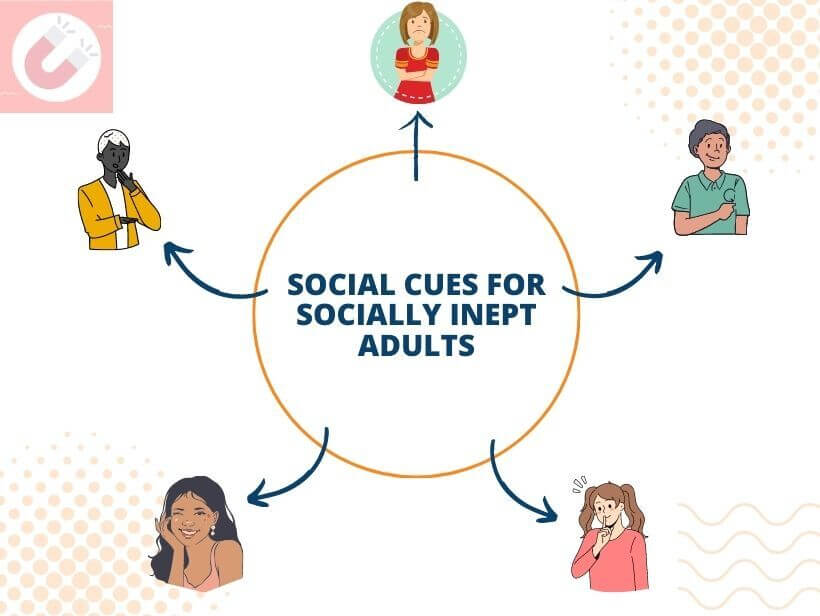While nervous laughter can be a harmless, albeit awkward, reaction to stress, it can have significant consequences, impacting social skills and social dynamics, and it can sometimes negatively affect relationships by causing misunderstandings or giving the impression of insensitivity.
Research shows that 80% of laughter isn’t actually related to humor and people are significantly more likely to laugh in the presence of others than when alone. In serious situations, laughing can be a confusing signal to both the nervous laugher and those around them.
Nervous laughter is an involuntary physical reaction to stressful situations, that can serve as a coping mechanism for anxiety, a release of nervous energy, or a subconscious attempt to alleviate social tension, uncertainty, or confusion.
But at what cost?
What Is Nervous Laughter And What Does It Mean?
Nervous laughter typically manifests in high-pressure or uncomfortable situations but over time it may become a habitual reflex. Nervous laughter is not about finding something genuinely humorous. It’s more like an instinctive reaction to a range of emotions, including social anxiety, fear, and discomfort.
It’s a complex behavior that can be both a social signal and a psychological defense mechanism that can become somewhat embarrassing or even problematic.
It’s important to be aware of non-verbal cues and how they might be interpreted by others in different contexts.
Nervous laughing may:
- Send mixed messages
- Make it hard for people to take you seriously
- Potentially be perceived as insensitive
Understanding why we laugh in serious situations can help us manage this reflex and its implications in our social interactions. In serious social, professional, or personal contexts, nervous laughter can lead to misunderstandings. It might be perceived as a lack of seriousness or empathy, potentially undermining trust and rapport.
This can be particularly impactful, especially when meeting new people, where first impressions are crucial. Over time, if not addressed, this behavior could harm important relationships and opportunities.
What Are The Types of Nervous Laughter?
Nervous laughter comes in various forms and can be triggered by an array of emotional and psychological factors, as well as certain medical conditions.
1. Courtesy Laughter
Courtesy laughter often occurs in social settings, where there is a perceived expectation to respond positively to another person’s remarks or jokes, regardless of whether they are genuinely amusing. It’s a social lubricant, serving to smooth over interactions and affirm relationships, even when genuine humor is absent.
- Often seen during conversations or presentations, especially when a speaker pauses for effect.
- It can be a conscious choice to demonstrate politeness or agreement.
2. Escape Mechanism
Nervous laughter can be an escape mechanism, used as a tool to quickly move past an uncomfortable topic or to exit a stressful situation. The laughter is less about amusement and more about signaling a desire to change the course of the interaction.
- Commonly observed when an individual is faced with a question or topic they wish to avoid.
- It may accompany a physical retreat from the situation, such as stepping back or looking away.
3. Incongruous Emotional Display
Sometimes nervous laughter arises in situations where it appears highly inappropriate, such as during a solemn event or in response to tragic news. This incongruous emotional display can be confusing for onlookers and even for the person experiencing it.
- Examples include chuckling at a funeral or in reaction to someone else’s misfortune.
- It is often uncontrollable and does not reflect the true emotions of the individual.
4. Linked to Medical Conditions
In some cases, nervous laughter may be symptomatic of a medical condition like Pseudobulbar Affect (PBA), which involves sudden, involuntary episodes of laughing or crying that are disproportionate to the situation.
- PBA is often associated with brain injury or neurological conditions such as ALS.
- The laughter experienced in PBA can be particularly challenging to manage due to its unpredictability and intensity.
- Nervous laughter may also be a symptom of other medical conditions, like gelastic seizures, Tourette syndrome, and certain dementias, where brain changes cause involuntary or inappropriate laughter.
5. Anxiety-Induced Laughter
In moments of high anxiety, some individuals may find themselves laughing as a way to release pent-up nervous energy. This form of nervous laughter helps in regulating the overwhelming emotions and momentarily reducing stress levels.
- It is frequently seen in scenarios like public speaking or high-stakes meetings.
- While it serves as a coping mechanism for the individual, it can be misinterpreted by others.
6. Social Signaling
Nervous laughter can also function as a signal to others, indicating that the person is not a threat or is seeking a non-confrontational pathway through an interaction. This can be especially true in environments where hierarchies are present, and the individual feels the need to display submissiveness or appeasement.
- Often observed in interactions with authority figures or within group settings where social dynamics are at play.
- It can be a non-verbal social cue used to navigate complex situations.
7. Humorous Displacement
At times, individuals may use humor as a way to displace the tension they feel onto something less threatening. This type of nervous laughter is an attempt to find levity in a situation that may otherwise be overwhelming or emotionally charged.
- It can manifest during serious conversations where the individual feels out of depth or powerless.
- This displacement can sometimes defuse the tension but may also trivialize the gravity of the situation.
- Displacement differs from anxiety-induced laughter in that it is more of a strategic redirection of focus rather than a spontaneous release of nervous energy.
What Causes Nervous Laughter?
Nervous laughter is not simply an odd quirk of human behavior; it is deeply rooted in our psychological and biological responses to stress and anxiety. There are several factors that contribute to why an individual might laugh when faced with a serious situation, ranging from social cues to neurological conditions.
Feeling Anxious
Anxiety often lies at the heart of nervous laughter. When we’re anxious, our body is in a heightened state of arousal, preparing for a fight-or-flight response. Laughing can be an involuntary attempt to dispel this nervous energy and restore a sense of normalcy.
- The anticipation of discomfort in certain situations can trigger preemptive laughter.
- Anxiety-driven laughter can serve as both a signal to others and a self-soothing behavior.
Triggering Contexts
Certain contexts are more likely to provoke nervous laughter due to their inherent stress or emotional complexity.
- Conversations Around Trauma: Discussing past trauma can lead to nervous laughter as a defense mechanism to shield oneself from re-experiencing pain.
- Awkward Situations: Social faux pas or misunderstandings often result in nervous laughter as a way to deflect embarrassment or confusion.
- Performance Anxiety: In situations where one is required to perform or speak publicly, the fear of judgment or failure can trigger laughter as a nervous reflex.
Psychological and Biological Factors
The inclination to laugh nervously also stems from deeper psychological and biological factors. For example, the brain’s circuitry for laughter is closely linked to the regions controlling emotions, making laughter an easy go-to outlet when those areas are activated.
- Neurological conditions such as PBA involve dysregulation of emotional expression, leading to inappropriate laughter.
- Psychological discomfort or cognitive dissonance may result in laughter as a way to reconcile conflicting feelings or thoughts.
- Laughter has been linked to the release of endorphins, our body’s natural stress relievers, which may explain the urge to laugh in tense situations.
What Are The Social Consequences Of Having A Nervous Laugh?
The social consequences of nervous laughter can be quite profound. It can alter the way others perceive you, potentially undermining your sincerity, romantic goals, or networking efforts. In some cases, it can even lead to physical discomfort, such as headaches or respiratory issues due to prolonged tension.
- Misinterpretation of Intent: Others may interpret nervous laughter as a lack of seriousness, understanding of social cues, or empathy.
- Social Alienation: Frequent nervous laughter might lead to feelings of social isolation, as others might avoid engaging in deeper or more serious interactions.
- Professional Repercussions: In work environments, nervous laughter can be seen as unprofessional and may affect career progression or relationships with colleagues.
- Physical Discomfort: Chronic nervous laughter can contribute to stress-related physical symptoms such as muscle tension, fatigue, and headaches.
- Hindered Self-Expression: Individuals who laugh nervously might struggle to express their true feelings, leading to a disconnect between their internal emotions and external expressions.
- Misunderstood Emotional State: Nervous laughter can lead others to misread one’s emotional state, mistakenly believing that a situation is being taken lightly when, in fact, the individual may be feeling quite the opposite.
How Does Nervous Laughter Affect Others?
Nervous laughter doesn’t just impact the individual; it has a ripple effect that extends to those around them. The way others interpret and react to nervous laughter can influence social dynamics and empathy levels within interpersonal exchanges.
Observing someone laugh nervously can create discomfort or confusion among others. In serious settings, it may be perceived as a lack of decorum or sensitivity, potentially straining relationships or leading to misunderstandings.
Nervous laughter in response to another’s distress can appear dismissive and hinder the formation of empathetic connections. It can be especially damaging if it seems to minimize the severity of someone else’s pain or struggle.
How To Overcome Nervous Laughter
Although it might seem like an intractable part of one’s personality, it is possible to manage and reduce the incidence of nervous laughter. With awareness and practice, you can find strategies that help you maintain composure in stressful situations.
1. Substitute with Silence
Choosing silence over laughter can be a powerful alternative. When feeling the urge to laugh nervously, try pausing and allowing yourself a moment of quiet instead. This can prevent the laughter and give you time to compose your thoughts.
2. Identify Your Triggers
Recognizing the specific situations or topics that trigger nervous laughter can be the first step in managing it. Paying attention to when and why you laugh can help you anticipate and prepare for these triggers, enabling you to respond differently.
3. Additional Tailored Strategies
Personalized approaches such as deep breathing exercises, mindfulness practices, or redirecting your focus can also be effective. For instance, grounding techniques like feeling your feet on the ground can help bring you back to the present moment and away from the nervous response.
4. Seeking Professional Help
When nervous laughter becomes disruptive to your life or is a symptom of an underlying condition, professional guidance may be warranted. Therapists can provide strategies to cope with anxiety and stress, and if necessary, medication may be prescribed to manage conditions like PBA.
Social coaching through Jaunty Gym, for instance, could offer pragmatic exercises to enhance social skills and reduce anxiety-induced behaviors in interpersonal situations.
5. Practice, Reflect, Build Confidence, and Reassess
Repeatedly practicing new responses to anxiety-provoking situations can increase your confidence and help to create new behavioral patterns. Reflecting on past instances of nervous laughter can give insights into how to improve future reactions.
Why Are You Laughing?
Nervous laughter is a complex behavior, but It’s generally a physiological response to anxiety, stress, and discomfort.
The next time you find yourself chuckling in a serious situation, remember that it’s a common human reaction and not something to be ashamed of.
Understanding the triggers and mechanisms behind nervous laughter can help you begin to address and manage it more effectively.
If you’re looking to improve your social skills and build confidence in your interactions, Jaunty offers a space where growth and learning are prioritized.
With a curriculum grounded in a diverse range of disciplines, including psychology and neuroscience, The Social Skills Masterclass provides tools and strategies that can help mitigate issues like nervous laughter by enhancing your communication abilities and social intelligence.
Social skills are learnable.
With practice, support, and the right mindset, you can move beyond the barriers of nervous laughter to a more fulfilling social life.
Don’t let an awkward chuckle hold you back—embrace the journey of self-improvement and watch as your social landscape transforms.



